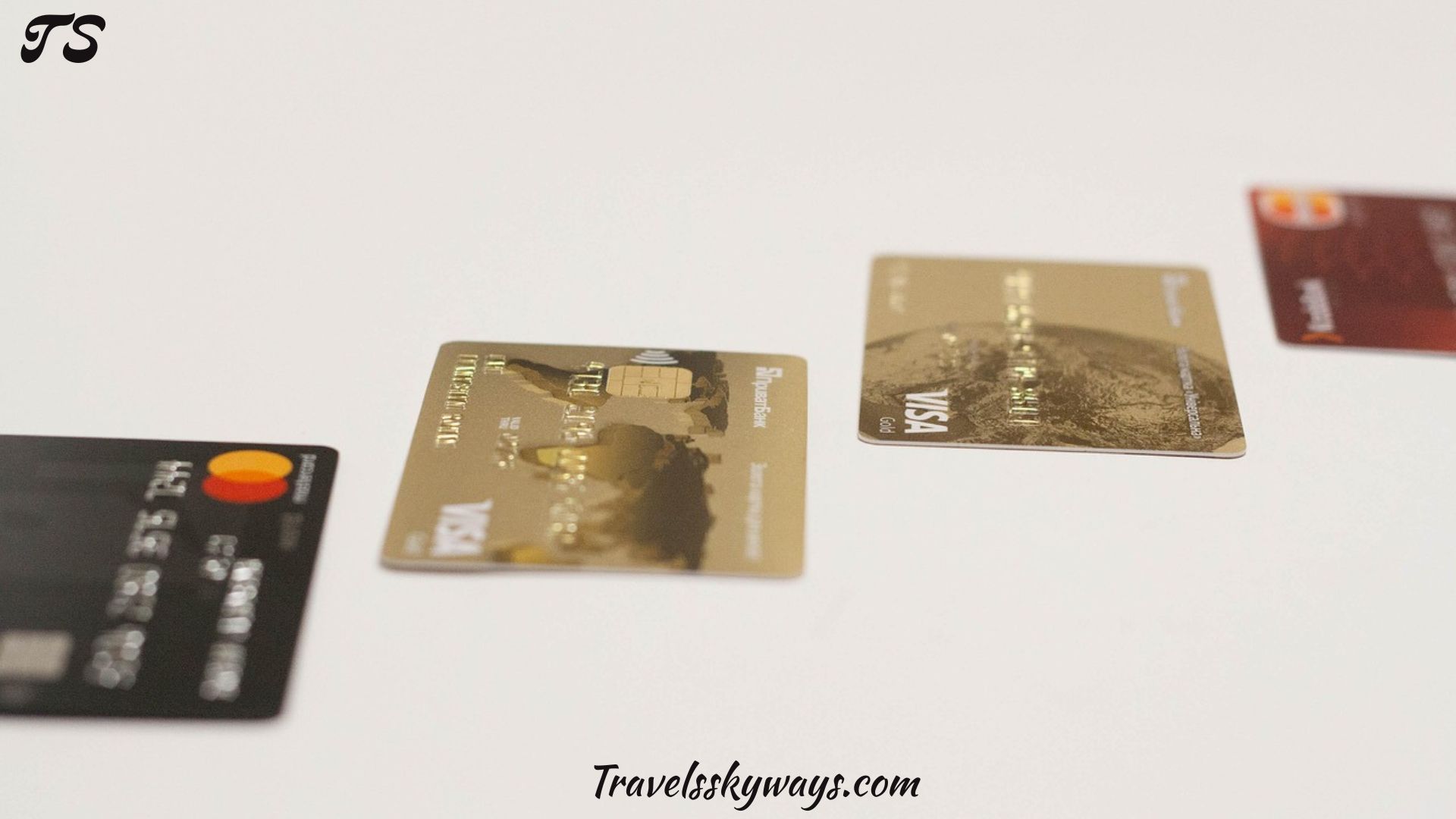
Are you prepared to transform travel costs into bonuses? A corporate travel credit card is not only a means of payment but also an asset that contributes to profit. The suitable card can help your business obtain free tickets, hotel upgrades, and powerful expense management tools.
If you are a startup founder, a freelancer, or in charge of a growing team, taking advantage of a business credit card for travel can increase both efficiency and savings. Let’s discover the ways the most clever companies are using these cards to the fullest in terms of rewards, making spending less complicated, and having smarter travels in 2025.
What Are Business Travel Credit Cards?
If you’re constantly flying for work, staying in hotels, or entertaining clients, business travel credit cards are designed to make every dollar count. These cards combine the rewards of a traditional business credit card with the perks of premium travel tools.
Their core objective is to help businesses — from startups to large enterprises — maximize travel rewards, access airport lounges, enjoy no foreign transaction fees, and streamline expense tracking. Unlike general business cards, they prioritize travel-centric features that boost productivity and comfort on the go.
“A good business travel credit card doesn’t just save you money—it saves you time, stress, and missed opportunities.”
How They Differ From Personal and General Business Credit Cards
| Feature | Business Travel Credit Cards | Personal Travel Cards | General Business Cards |
| Target User | Business owners, employees on work trips | Individual consumers | Business owners (broad expenses) |
| Rewards Focus | Flights, hotels, travel upgrades | Travel & personal lifestyle perks | Office supplies, advertising, shipping |
| Expense Tracking Tools | Yes, often includes integration with expense software | No | Yes |
| Foreign Transaction Fees | Frequently $0 (waived) | Varies | May apply |
| Airport Lounge Access | Common with premium cards (e.g., Amex Business Platinum) | Sometimes | Rarely |
Key Differences:
- Personal travel credit cards don’t offer business reporting tools or employee card controls.
- General business cards don’t offer lounge access or boosted rewards for travel categories.
🔍 Quick Facts About Business Travel Credit Cards
- Top Choice (2025): Chase Ink Business Preferred® – Earn up to 3x points on travel.
- Best for Lounge Access: Amex Business Platinum – Global Entry credit + over 1,400 lounges worldwide.
- Annual Fees: Range from $0 to $695, depending on benefits.
- Best for International Travel: Capital One Spark Miles for Business – No foreign transaction fees + 2x unlimited miles.
- Popular Perks: Travel insurance, trip cancellation coverage, and concierge services.
✅ Pro Tip: If your company logs regular air miles, consider business travel credit cards with airline-specific partnerships (such as Delta or United) to unlock free checked bags, priority boarding, and upgraded seating.
Why Your Business Needs a Travel Credit Card
When your team hits the road, a business travel credit card becomes more than just a payment tool—it’s a strategic asset. It unlocks tailored travel perks, boosts financial control, and even supports your long-term business credit profile.
Business-Specific Travel Perks and Protections
Unlike personal cards, business travel credit cards offer exclusive perks designed for work-related travel:
- Airport lounge access for stress-free layovers
- Priority boarding, free checked bags, and seat upgrades
- Trip delay and cancellation insurance
- Rental car protection and baggage loss reimbursement
- Emergency assistance and concierge services
- 0% foreign transaction fees for international business trips
“A great travel card doesn’t just reward the trip—it protects it.”
Better Expense Tracking and Reporting
Managing multiple receipts across employees can become a messy process. With a business travel credit card, you gain:
- Integrated expense management tools
- Real-time transaction tracking
- Itemized monthly statements
- Syncing with accounting platforms like QuickBooks or Xero
| Feature | Benefit |
| Expense Categorization | Auto-tags travel, dining, lodging, etc. |
| Mobile App Access | Upload receipts, monitor spending instantly |
| Custom Reports | Download summaries by project, department, or employee |
| Integration | Connects with popular accounting & ERP software |
Tax Benefits and Deductions
Using a dedicated business travel card helps keep work expenses separate from personal spending. This makes it easier to:
- Claim tax deductions for business-related travel expenses
- Track deductible categories like airfare, hotels, meals, and ground transport
- Avoid IRS red flags by maintaining clean and verifiable records
Important Note: According to the IRS, common deductible business travel expenses include:
| Deductible Item | Example |
| Transportation | Airfare, car rentals, taxis |
| Lodging | Hotel stays, business accommodations |
| Meals | 50% of the cost for meals during travel |
| Misc. Expenses | Wi-Fi, baggage fees, parking |
Building Business Credit
Using a business travel credit card responsibly builds your company’s credit profile. That means:
- Higher business credit scores over time
- Easier approval for loans and higher credit limits
- Better vendor relationships and payment terms
- Separation between personal and business credit histories
“Solid business credit opens the door to lower interest rates, bigger financing, and long-term growth.”
Employee Card Management Capabilities
Do you need your sales team or project managers to travel? With employee cards, you can:
- Issue cards to staff with individual spending limits
- Monitor purchases to prevent unauthorized use
- Set category restrictions (e.g., flights, hotels only)
- Track expenses by employee, team, or location
| Control Feature | Function |
| Set Spending Limits | Control daily or monthly employee spending |
| Real-Time Alerts | Receive notifications for each transaction |
| Role-Based Access | Managers can approve or reject charges |
| Centralized Billing | All employee cards roll into one statement |
A business travel credit card isn’t just a luxury—it’s a smart financial tool that improves how your company spends, saves, and scales. With the right card, you’re not just booking flights; you’re investing in efficiency, rewards, and long-term growth.
Key Features to Look for in a Business Travel Credit Card

Not all cards are created equal. The best business travel credit cards pack more than points—they offer real value, smart tools, and powerful perks that support your team on the move. Here’s what to keep an eye out for when choosing the right one.
✈️ Travel Rewards Earning Rates
Look for cards that reward the categories where your business spends the most. The best cards offer accelerated points or miles on:
- Flights
- Hotel stays
- Rideshares & rental cars
- Dining
- Office purchases tied to travel
| Top Cards (2025) | Earning Rate on Travel | Other Bonus Categories |
| Chase Ink Business Preferred® | 3x points on travel | Shipping, ads, internet |
| American Express Business Gold | 4x points on top 2 spend categories | Including flights & dining |
| Capital One Spark Miles for Business | 2x miles on every purchase | Simple flat-rate system |
Tip: Choose a card with flexible points that transfer to airlines or hotels—more value, more freedom.
🛫 Premium Travel Perks
Some cards go beyond points and offer serious travel upgrades that enhance your business trips. These features are must-haves if you or your employees travel frequently:
- Airport lounge access (e.g., Centurion, Priority Pass)
- Seat upgrades and early boarding
- Complimentary TSA PreCheck / Global Entry
- Hotel status (Marriott Gold, Hilton Honors, etc.)
| Perk | Available On |
| Lounge Access | Amex Business Platinum, Capital One Venture X |
| Free Global Entry/TSA PreCheck | Chase Ink Preferred, Amex Biz Platinum |
| Hotel Elite Status | Hilton Business Amex, Marriott Bonvoy Business |
🌍 International Travel Benefits
Doing business overseas? Then your card must come equipped with global perks:
- No foreign transaction fees
- Worldwide acceptance (Visa/Mastercard preferred)
- Multi-currency support
- 24/7 global assistance services
“A great business travel card should work anywhere your business does.”
🛡️ Travel Protections and Insurance
Your travel credit card should protect your people—and your profits. Look for built-in coverage that reduces risks and unexpected expenses:
- Trip cancellation and interruption insurance
- Lost baggage coverage
- Travel accident insurance
- Rental car collision damage waiver
- Trip delay reimbursement
| Protection Type | Covered Up To |
| Trip Cancellation | $5,000 per trip (varies by card) |
| Baggage Loss | $3,000 per passenger |
| Rental Car Insurance | Full collision/damage waiver |
| Trip Delay | $500 after a 6+ hour delay |
📊 Integration with Expense Management Systems
The best business travel credit cards connect seamlessly with the tools you already use. This makes reconciliation faster and accounting cleaner:
- Syncs with accounting software (QuickBooks, Xero, FreshBooks)
- Automated receipt capture
- Exportable reports by employee, department, or trip
- Customizable categories and tags
| Card | Best for Integration | Compatible Software |
| Brex Card | Tech startups | Expensify, QuickBooks, NetSuite |
| Chase Ink Business Preferred | General business | QuickBooks, FreshBooks |
| Amex Business Platinum | Enterprise-level travel | Concur, SAP, Xero, and more |
When choosing a business travel credit card, don’t just chase the biggest signup bonus. Focus on long-term value—from high travel rewards and premium perks to strong travel protection and expense system integration.
Choosing the Right Business Travel Credit Card: A Step-by-Step Approach
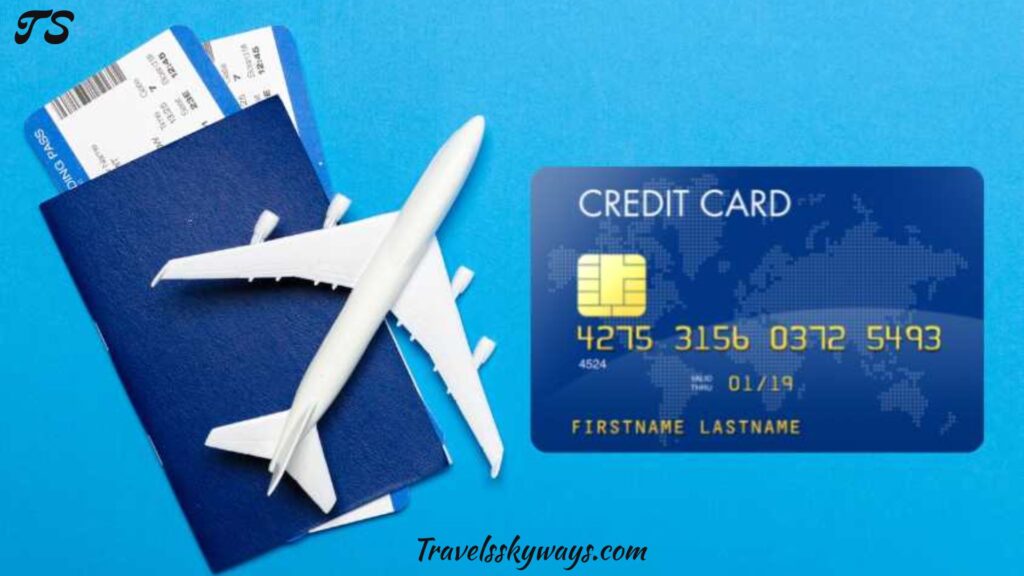
With dozens of business travel credit cards on the market, picking the best one for your company requires more than just glancing at a welcome bonus. Here’s a clear, step-by-step approach to help you make a smart, profit-focused decision.
✅ Step 1: Assess Your Annual Travel Spending
Start by calculating how much your company spends on travel annually. This includes:
- Flights
- Hotels
- Car rentals
- Meals while traveling
- Team travel for meetings, events, or sales
Example Table:
| Category | Estimated Annual Spend |
| Flights | $18,000 |
| Hotels | $12,500 |
| Ground Transportation | $4,200 |
| Travel Meals | $5,000 |
| Total | $39,700 |
Why it matters: High travel spend means higher rewards. Cards that offer 2x–5x points on travel purchases can return thousands in value annually.
✈️ Step 2: Determine Preferred Airlines and Hotels
If your company regularly flies with the same airline or books with a particular hotel chain, consider a co-branded travel card. These cards offer:
- Extra points on brand-specific purchases
- Elite status boosts
- Priority check-in, upgrades, and free nights
| Card Type | Best for Loyalty |
| Amex Delta SkyMiles Business | Frequent Delta flyers |
| Marriott Bonvoy Business Amex | Marriott loyalists |
| United Business Card | Consistent United Airlines travelers |
Pro Tip: If your travel varies across providers, a general business travel credit card like the Chase Ink Business Preferred® may offer more flexibility.
👥 Step 3: Evaluate Team Travel Patterns
Ask yourself:
- Do multiple employees travel each month?
- Are some team members remote or field-based?
- Does your company attend frequent conferences or events?
If yes, look for cards with:
- Free or low-cost employee cards
- Spending limits per user
- Real-time tracking and alerts
- Custom permissions and category controls
🌎 Step 4: Consider International vs. Domestic Needs
If your business operates globally—or even just takes a few overseas trips—your card must be travel-friendly worldwide.
| Feature | Essential for International Use |
| No Foreign Transaction Fees | ✔️ Save ~3% on every international charge |
| Global Acceptance | ✔️ Visa/Mastercard preferred |
| Currency Support | ✔️ Useful for multi-country teams |
| 24/7 Fraud Protection | ✔️ Especially important when abroad |
Note: Cards like the Capital One Spark Miles for Business and Amex Business Platinum are known for excellent international benefits.
💰 Step 5: Compare Annual Fees vs. Potential Rewards
A higher annual fee isn’t always a bad thing—if the rewards outweigh the cost. Consider:
- Sign-up bonuses
- Annual travel credits
- Lounge access value
- Points earned per dollar spent
- Travel insurance and protection
Example :
| Card | Annual Fee | Estimated Value of Perks | Net Benefit |
| Amex Business Platinum | $695 | ~$1,400 (rewards + perks) | ~$705 |
| Chase Ink Business Preferred | $95 | ~$850 | ~$755 |
| Capital One Spark Miles | $0 intro, then $95 | ~$600 | ~$505 |
👨💼 Step 6: Review Employee Card Options
Efficient management of team spending is crucial. Look for:
- Free additional employee cards
- Control settings by user or department
- Tracking tools that tag and report purchases
- Card-level alerts and fraud detection
| Feature | Why It Matters |
| Employee Card Limits | Prevents overspending |
| Purchase Categories | Custom limits for T&E (Travel & Expense) |
| Unified Billing | Makes monthly reconciliation easier |
| Reporting Access | Assign view-only roles for finance leads |
Choosing the right business travel credit card is about aligning card benefits with how and where your business travels. When you follow this step-by-step process, you’ll find a card that doesn’t just save money—it becomes a powerful tool for scaling smarter and traveling better.
Rewards and Bonuses: How Business Travel Credit Cards Boost Your Bottom Line
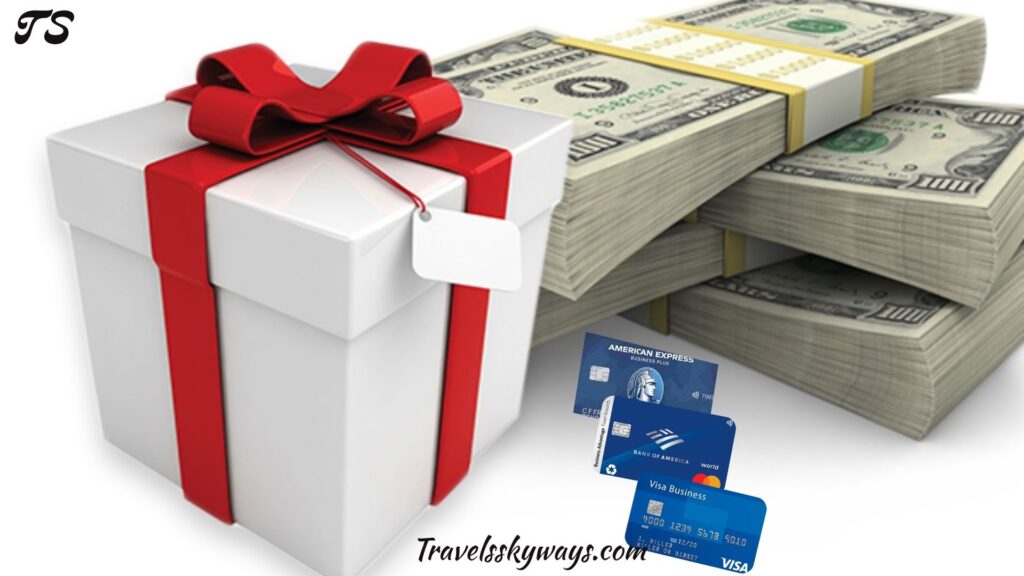
When it comes to business travel credit cards, the rewards and bonuses often make the difference between a good card and a game-changer. Understanding how rewards work—and how to maximize them—can add hundreds or even thousands of dollars back into your business every year.
💎 Overview of Reward Structures
Most business travel cards offer points, miles, or cashback that accumulate based on how much you spend—and where. Common reward models include:
- Tiered rewards: Earn higher points for specific categories like airfare, hotels, and dining.
- Flat-rate rewards: A fixed rate (e.g., 2x miles on all purchases), which simplifies earning.
- Transferable points: Flexible points that convert to airline or hotel partners, increasing value.
- Cashback: Some cards offer cashback instead of points, useful for straightforward savings.
| Reward Type | Pros | Cons |
| Tiered Rewards | Higher earnings on travel-related spend | Complex earning structure |
| Flat-Rate Rewards | Simple and predictable | May miss out on category bonuses |
| Transferable Points | High value when redeemed smartly | Requires effort to maximize |
| Cashback | Easy to use for any business expense | Often lower total value than points |
🎉 Welcome and Register Bonuses
One of the fastest ways to boost your rewards is by taking advantage of welcome bonuses. These are often:
- Large point or mile offers after meeting a minimum spending threshold (e.g., 75,000 points after $7,500 spend in 3 months).
- Sometimes, include statement credits or travel vouchers.
- Can equal hundreds of dollars in free travel or cash value.
Example: The Chase Ink Business Preferred® card regularly offers a 100,000-point welcome bonus, worth over $1,250 in travel when redeemed through Chase Ultimate Rewards.
🚀 Maximizing Return on Travel Spending
To get the most from your card:
- Focus spending on bonus categories like airfare, hotels, and dining.
- Use partner booking portals that often earn extra points.
- Combine rewards with corporate travel programs for additional savings.
- Redeem points for high-value travel redemptions such as business class flights or hotel upgrades.
| Spending Category | Typical Bonus Rate | Tips to Maximize |
| Airfare | 3x to 5x points/miles | Book directly through airlines or card portals |
| Hotels | 3x to 4x points | Leverage hotel partnerships |
| Dining | 2x to 4x points | Use a card for meals during business trips |
| General Purchases | 1x to 2x points | Use for incidental business expenses |
✨ Hidden Value of Premium Perks
Beyond points, premium cards offer perks that can save money and improve your travel experience:
- Airport lounge access: Avoid costly food and drink at airports.
- Travel credits: Annual credits (e.g., $200) that offset fees and expenses.
- Free Global Entry/TSA PreCheck: Speeds through security, saving time.
- Trip delay and cancellation insurance: Protects your business investments.
- Concierge services: Assistance with bookings and last-minute changes.
These perks often offset annual fees, turning an expensive card into a money-saving powerhouse.
📊 Rewards & Bonuses Breakdown
| Feature | What to Look For | Top Cards Offering This |
| High Welcome Bonus | 75,000+ points after minimum spend | Chase Ink Business Preferred, Amex Business Gold |
| Bonus Points on Travel | 3x+ points on flights and hotels | Amex Business Platinum, Capital One Spark Miles |
| Flexible Redemption | Transfer points to multiple airline/hotel partners | Chase Ultimate Rewards, Amex Membership Rewards |
| Valuable Premium Perks | Lounge access, travel credits, insurance | Amex Business Platinum, Chase Sapphire Reserve |
Remember: The best business travel credit card isn’t just about the points—it’s about how those points, bonuses, and perks work together to save your business money and improve your travel experience.
Must Read: 19 Cool Things To Do In Montgomery, Alabama
Understanding the Costs of Business Travel Credit Cards
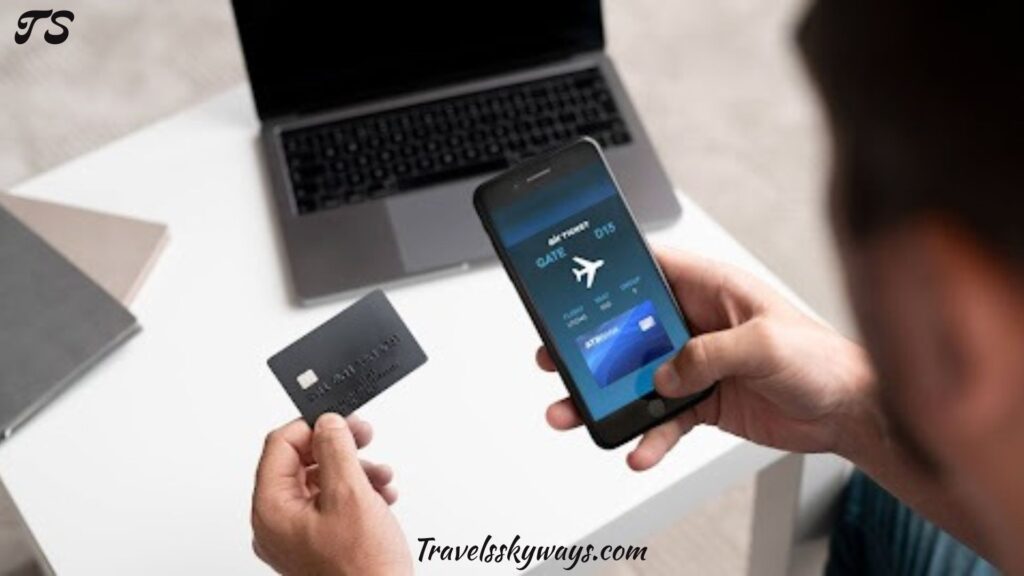
While business travel credit cards offer fantastic perks and rewards, they come with costs you shouldn’t overlook. Knowing these fees upfront helps you weigh the benefits against the expenses and choose the card that truly fits your business needs.
💵 Annual Fees
Many top-tier business travel credit cards carry annual fees that range widely:
- No-fee cards: Some offer basic rewards with no annual fee, great for light travelers.
- Mid-tier fees ($95–$150): These often include solid rewards and some travel perks.
- Premium cards ($400+): Pack in extensive travel benefits, lounge access, and concierge services.
| Card Example | Annual Fee | Key Benefits Included |
| Chase Ink Business Preferred | $95 | 3x points on travel, cell phone protection |
| Amex Business Platinum | $695 | Airport lounges, travel credits, elite status |
| Capital One Spark Miles | $0 intro, $95 after | 2x miles on all purchases |
Pro Tip: Weigh the annual fee against potential travel credits and perk value to see if the card pays for itself.
💳 Interest Rates
Most business travel credit cards have variable APRs that can affect you if you carry a balance:
- Average APR ranges from 18% to 26% depending on creditworthiness.
- Paying off balances in full each month is crucial to avoid high-interest costs.
- Some cards offer a 0% introductory APR on purchases or balance transfers for a limited time.
🌍 Foreign Transaction Fees (If Applicable)
If your business travels internationally, foreign transaction fees can add up quickly. These fees usually:
- Range from 2% to 3% per international purchase.
- Can turn a $1,000 hotel bill into a $1,030 expense or more.
- Fees are waived on most premium travel cards, making them essential for global travelers.
| Card | Foreign Transaction Fee | Ideal For |
| Chase Ink Business Preferred | 0% | Frequent international travel |
| Capital One Spark Miles | 0% | Worldwide acceptance |
| Business cards with no fee | Usually 2-3% | Primarily domestic use |
🔍 Cost-Benefit Analysis: Is It Worth It?
To decide if a card’s fees make sense, ask yourself:
- How much will you earn in rewards and perks annually?
- Do the travel credits and insurance cover or exceed the annual fee?
- Will you avoid interest charges by paying balances monthly?
- Does the card offer sufficient foreign fee waivers for your travel needs?
| Factor | Consideration | Example Outcome |
| Annual Fee | $95 vs $695 | High fee justified if perks + credits exceed $700 |
| Rewards Earnings | 3x points on $30,000 travel spend | ~90,000 points worth $1,100+ |
| Foreign Fees | 0% vs 3% on $10,000 international spend | Save $300 with no foreign transaction fee |
| Interest Charges | Avoid carrying a balance | Saves hundreds in interest annually |
Understanding the costs behind a business travel credit card empowers you to pick a card that fits your budget while maximizing rewards and perks. The best cards balance fees with clear, tangible benefits that keep your business traveling smart—and saving money.
Top Business Travel Credit Cards in 2025
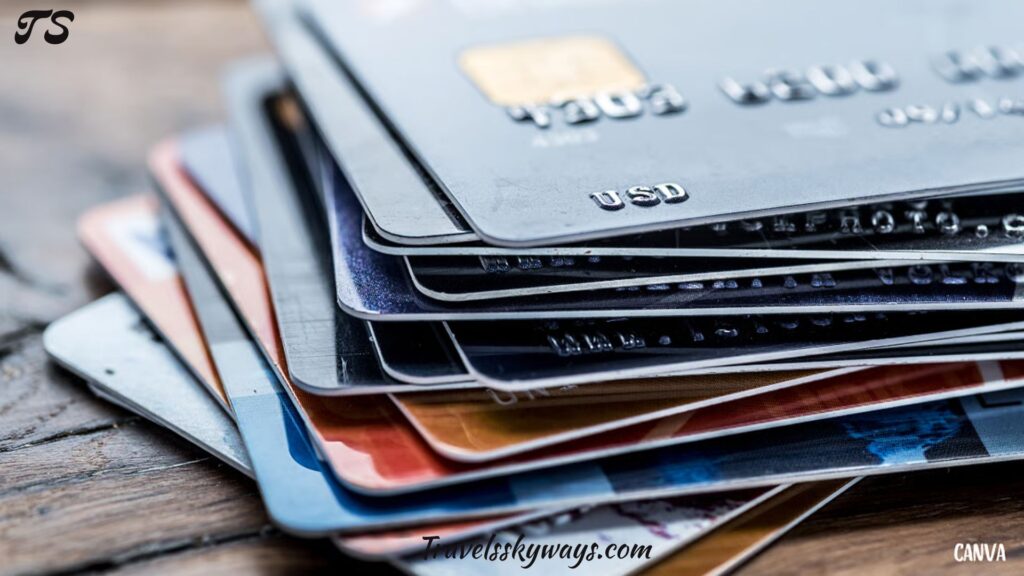
In 2025, several business travel credit cards stand out for their rewards, perks, and suitability for various business needs. Here’s a breakdown:
🥇 Chase Ink Business Preferred® Credit Card
- Annual Fee: $95
- Welcome Bonus: 90,000 points after $8,000 spend in the first 3 months
- Earning Rates:
- 3x points on travel, shipping, internet, cable, phone services, and advertising on social media and search engines (up to $150,000 combined spend annually)
- 1x on other purchases
- 3x points on travel, shipping, internet, cable, phone services, and advertising on social media and search engines (up to $150,000 combined spend annually)
- Key Benefits:
- 25% more value when redeeming points for travel through Chase Ultimate Rewards
- Cell phone protection, trip cancellation/interruption insurance, and extended warranty
- 25% more value when redeeming points for travel through Chase Ultimate Rewards
- Ideal For: Businesses with significant spending in travel and advertising seeking high-value rewards.
🥈 American Express Business Platinum Card®
- Annual Fee: $895 (as of September 2025)
- Welcome Bonus: 150,000 Membership Rewards® points after $20,000 spend in the first 3 months
- Earning Rates:
- 5x points on flights and prepaid hotels booked through American Express Travel
- 1.5x points on eligible purchases of $5,000 or more
- 1x on other purchases
- 5x points on flights and prepaid hotels booked through American Express Travel
- Key Benefits:
- Access to over 1,300 airport lounges worldwide
- $400 dining credit and $600 Fine Hotels + Resorts credit
- Comprehensive travel protection and concierge service
- Access to over 1,300 airport lounges worldwide
- Ideal For: High-spending businesses prioritizing luxury travel perks and extensive benefits.
🥉 Capital One Venture Rewards Credit Card
- Annual Fee: $95
- Welcome Bonus: 75,000 miles after $4,000 spend in the first 3 months
- Earning Rates:
- 2x miles on every purchase
- 5x miles on hotels and rental cars booked through Capital One Travel
- 2x miles on every purchase
- Key Benefits:
- Flexible redemption options, including travel statement credits and transfer to travel partners
- No foreign transaction fees
- Flexible redemption options, including travel statement credits and transfer to travel partners
- Ideal For: Businesses seeking straightforward rewards with flexible travel redemption options.
💼 Brex Card for Startups
- Annual Fee: $0
- Welcome Bonus: Up to 50,000 points (Brex Exclusive)
- Earning Rates:
- 7x points on ride-sharing services
- 4x on travel
- 3x on dining
- 2x on software subscriptions
- 7x points on ride-sharing services
- Key Benefits:
- No personal guarantee required
- Real-time expense tracking and integration with accounting software
- No personal guarantee required
- Ideal For: Startups and tech-focused businesses seeking high rewards and seamless financial management.
🏦 Bank of America Business Advantage Travel Rewards Card
- Annual Fee: $0
- Welcome Bonus: None specified
- Earning Rates:
- 1.5x points on all purchases
- 3x points on travel booked through the Bank of America Travel Center
- 1.5x points on all purchases
- Key Benefits:
- No blackout dates on travel redemptions
- No foreign transaction fees
- No blackout dates on travel redemptions
- Ideal For: Businesses seeking a straightforward travel rewards card with no annual fee.
🧾 Rippling Corporate Card
- Annual Fee: $0
- Welcome Bonus: Up to 50,000 points (Brex Exclusive)
- Earning Rates:
- 7x points on ride-sharing services
- 4x on travel
- 3x on dining
- 2x on software subscriptions
- 7x points on ride-sharing services
- Key Benefits:
- Integrated with Rippling’s HR and payroll platform
- Real-time expense tracking and policy enforcement
- Integrated with Rippling’s HR and payroll platform
- Ideal For: Businesses already using Rippling for HR and payroll, seeking integrated financial solutions.
📊 Comparison Table
| Card | Annual Fee | Welcome Bonus | Key Benefits | Ideal For |
| Chase Ink Business Preferred® | $95 | 90,000 points after $8,000 spend | High rewards for travel and advertising | Businesses with significant travel and ad spend |
| Amex Business Platinum® | $895 | 150,000 points after $20,000 spend | Luxury travel perks, lounge access, credits | High-spending businesses prioritizing luxury perks |
| Capital One Venture Rewards | $95 | 75,000 miles after $4,000 spent | Flexible travel redemption, no foreign fees | Businesses seeking straightforward rewards |
| Brex Card for Startups | $0 | Up to 50,000 points | High rewards, no personal guarantee | Startups and tech-focused businesses |
| Bank of America Travel Rewards | $0 | None specified | Simple rewards, no foreign fees | Businesses seeking a straightforward card |
| Rippling Corporate Card | $0 | Up to 50,000 points | Integrated with Rippling’s platform | Businesses using Rippling for HR and payroll |
Real-World Insights: What Startups and Small Businesses Say About Business Travel Credit Cards
Choosing a business travel credit card isn’t just about comparing numbers on a spreadsheet. Real users often reveal the true value — or pitfalls — of these cards through their experiences. Let’s dive into what startups and small businesses have learned in the trenches.
💬 User Experiences and Case Studies
Startup Success: How a Tech Startup Saved Thousands
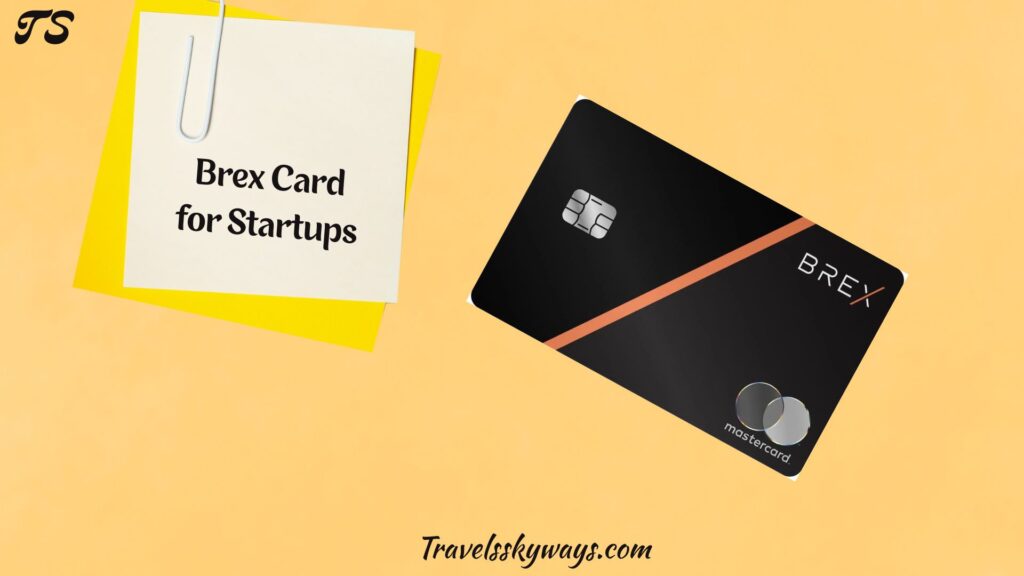
A growing tech startup switched to the Brex Card for Startups after struggling with expense tracking and credit approvals. Within six months, they:
- Saved over $2,000 in travel expenses thanks to 4x rewards on travel and 7x on ride-share.
- Reduced bookkeeping time by 30% through seamless accounting integrations.
- Avoided personal credit liability, a major relief for founders juggling multiple risks.
“Brex’s real-time expense management changed the game. We know where every dollar goes instantly,” said their CFO.
Small Business Story: The Power of Chase Ink Business Preferred®
A marketing consultancy with 15 employees relies on the Chase Ink Business Preferred® to cover flights, hotels, and client dinners. Their results include:
- Earning 90,000 bonus points from welcome offers and redeeming them for international flights.
- Gaining peace of mind with travel protections that covered a costly trip cancellation.
- Using employee cards to control spending without extra hassle.
“The ability to track employee spending and earn points on advertising expenses made Chase Ink indispensable,” shared the CEO.
📚 Lessons Learned from Startups and Small Businesses
- Perks Matter Beyond Points
Rewards are great, but travel protections and expense tools often deliver the biggest value. Don’t overlook insurance and employee management features. - Watch Out for Hidden Fees
Some startups got burned by foreign transaction fees or unexpected interest charges. Always read the fine print and pay balances on time. - Integration Saves Time and Money
Cards like Brex and Rippling shine because they connect with accounting and HR systems. This reduces manual work and errors. - Employee Cards Need Limits
Controlling employee spending without slowing down operations is key. Cards offering customizable spending limits and real-time tracking prove invaluable. - Welcome Bonuses Fuel Early Wins
New businesses especially benefit from hefty sign-up bonuses—use them wisely to offset travel costs or reinvest in growth.
🔑 Key Takeaway
The best business travel credit card fits your business workflow, supports your team, and rewards the spending you already do. Listening to real-world users can steer you toward a smarter choice—one that saves time, money, and headaches.
Business Travel Credit Card Application Process

Getting the right business travel credit card starts with a smooth application. Knowing the steps, requirements, and insider tips can boost your chances of approval and get you enjoying perks faster.
📝 How to Apply for a Business Credit Card
- Research and Choose Your Card
Narrow down options based on rewards, fees, and business needs. - Gather Business Information
Have your legal business name, address, and industry details ready. - Complete the Application Online or In-Person
Most issuers offer quick online applications. - Submit Financial Information
Include annual revenue, estimated monthly spending, and sometimes profit/loss details. - Provide Personal and Business Identification
This usually means your Social Security Number (SSN) and Employer Identification Number (EIN). - Review Terms and Submit
Double-check your info, agree to the terms, and submit your application.
🔍 Requirements and Eligibility
| Requirement | Details |
| Employer Identification Number (EIN) | Issued by the IRS; required by most card issuers (can use SSN if sole proprietor). |
| Business Revenue | Varies by issuer; usually minimum $10,000+ annual revenue is ideal. |
| Time in Business | Some cards require at least 6 months to 1 year of operation. |
| Personal Credit Score | Most issuers expect good to excellent credit (usually 680+). |
| Business Type | Sole proprietorship, LLC, corporation—all eligible with proper documentation. |
💡 Tips for Approval
- Use Your EIN When Possible: Helps separate personal and business credit.
- Maintain a Strong Personal Credit Score: Many issuers consider personal credit, especially for new businesses.
- Be Honest About Revenue and Spending: Overestimating can backfire; underestimating might limit credit line offers.
- Keep Your Business Info Consistent: Match IRS and legal documents to avoid confusion.
- Limit Applications: Multiple credit inquiries can hurt your approval chances.
- Prepare Financial Statements: Have recent bank statements or tax returns ready in case the issuer asks.
Pro Tip: If your business is brand new, consider applying as a sole proprietor using your SSN to build credit history first.
Applying for a business travel credit card doesn’t have to be daunting. Follow these steps, meet the requirements, and you’ll be on your way to earning valuable travel rewards and managing expenses efficiently.
Advanced Strategies: Getting More from Your Business Travel Credit Card
Once you’ve picked the right business travel credit card, the real power lies in how you use it. These advanced strategies will help your business spend smarter, earn faster, and travel better — all while staying in control.
🧾 Controlling Employee Spending
Giving team members access to company credit cards doesn’t have to mean losing control. Use these tools to stay on top of every dollar:
✅ Key Strategies:
- Set individual spending limits for each employee card.
- Restrict usage by category (e.g., travel, lodging, or meals only).
- Use virtual cards for one-time use or online purchases.
- Real-time alerts let you know when and where money is being spent.
- Auto-sync with accounting software for clean, trackable reports.
📊 Spending Control Features
| Feature | Available On | Benefit |
| Set Limits per Card | Amex Business, Brex, Rippling | Prevent overspending |
| Category Restrictions | Ramp, Brex, Rippling | Block non-essential purchases |
| Real-Time Alerts | Chase, Capital One, Amex | Instant updates on spending activity |
| Integration w/ QuickBooks | Amex, Brex, Capital One | Simplifies expense reconciliation |
Pro Tip: Brex and Rippling stand out for startups because of deep spend controls and HR integrations.
✈️ Maximizing Rewards with Travel Patterns
Earning the most from your travel rewards credit card means syncing it with your team’s actual travel habits.
🎯 Optimize by:
- Identifying top spending categories — is it airfare, hotels, rideshare, or dining?
- Matching cards to your routes — co-branded cards work best for frequent flyers with a preferred airline (e.g., Delta, United).
- Using travel booking portals — many cards (like Amex or Chase) offer bonus points for using their platforms.
- Pre-paying for travel to earn upfront rewards and discounts.
✨ Example:
A consulting firm earning 5x points on flights booked via Amex Travel saved $3,000 in points over 8 months — just by routing purchases strategically.
🛫 Using Cards with Loyalty Programs
Pairing your business travel credit card with airline and hotel loyalty programs unlocks double-dipping opportunities — and faster elite status.
🔄 Combine for Maximum Value:
- Transfer card points (e.g., Amex Membership Rewards or Chase Ultimate Rewards) directly to frequent flyer or hotel accounts.
- Book through loyalty programs to stack credit card rewards with program points.
- Link loyalty accounts to your credit card portal for easier redemption and tracking.
- Use elite perks earned through loyalty tiers — like free upgrades, early check-in, or priority boarding.
🧳 Sample Reward Stacking
| Purchase | Card Used | Loyalty Program | Rewards Earned |
| Delta flight | Amex Business Platinum | Delta SkyMiles | 5x Amex points + SkyMiles + MQDs |
| Marriott stay | Chase Ink Business Preferred | Marriott Bonvoy | 3x Chase points + Bonvoy points + Elite Night credit |
| Hilton booking | Amex Business Gold | Hilton Honors | 4x Amex points + Hilton Honors points |
Did You Know? Transferring points from Amex or Chase to partners like Singapore Airlines, Hyatt, or British Airways can deliver up to 2x the value compared to direct bookings.
💡 Tip
Don’t just spend — strategize. When you control employee usage, align rewards with real travel behavior, and plug into loyalty programs, your business travel credit card becomes a full-blown profit tool, not just a piece of plastic.
Common Misconceptions Debunked About Business Travel Credit Cards
Misunderstandings about business travel credit cards can keep entrepreneurs and small business owners from making smart financial moves. Let’s set the record straight by tackling some of the biggest myths in the business credit card world.
❌ Myth #1: Business Credit Cards Don’t Affect Personal Credit
Truth:
While business credit cards are linked to your company, most issuers do check your personal credit when you apply—especially if you’re a sole proprietor or a small business without established credit.
- Applying can result in a hard inquiry on your personal credit report.
- Missed payments may also show up on your personal credit score.
- However, responsible use can help build your business credit profile separately.
Pro Tip: To build business credit, use an EIN during the application and pay off balances in full each month.
🏢 Myth #2: Business Cards Are Only for Large Companies
Truth:
You don’t need to be a corporation with millions in revenue to qualify for a business card. In fact:
- Freelancers, consultants, side hustlers, and sole proprietors can all apply.
- You can use your Social Security Number instead of an EIN.
- Some cards are designed specifically for startups (like Brex or Ramp) and don’t require a personal credit check.
💬 “I started with no revenue and got approved with just my SSN. It was my first step toward building business credit.” – Freelance designer, Austin, TX
💸 Myth #3: Interest Rates Don’t Matter If You Pay in Full
Truth:
Yes, paying your balance each month avoids interest — but it’s important to understand the APR just in case:
- Emergencies happen — you may need to carry a balance unexpectedly.
- Some cards have variable APRs of 20–28% — very costly if unmanaged.
- Always check grace periods and how interest is calculated.
📌 Avoid hidden traps:
- Some cards exclude certain transactions (like cash advances) from interest-free periods.
- Late fees can still apply, even if you’re only one day behind.
🧾 Myth #4: Business Travel Cards Have Hidden Fees Everywhere
Truth:
While it’s true that some cards have extra fees, most of them are clearly outlined — if you know where to look:
| Fee Type | Reality Check |
| Foreign Transaction Fees | Often 0% on top-tier travel cards (e.g., Amex, Chase Ink) |
| Employee Card Fees | Usually free or low-cost with spending controls |
| Late Payment Fees | Common — usually $39–$49, depending on issuer |
| Annual Fees | Can be offset by perks (credits, lounge access, etc.) |
✅ Always read the full terms before applying — it’s not about avoiding fees, it’s about getting more value than you pay.
Business travel credit cards aren’t just for big companies with deep pockets — they’re powerful tools for small businesses, solo entrepreneurs, and startups too. By understanding how they actually work, you can avoid costly mistakes and unlock serious value.
How to Leverage Corporate Loyalty Tiers With Your Business Travel Card
Combining your business travel credit card with corporate loyalty programs isn’t just smart — it’s a fast track to elite perks, cost savings, and a smoother travel experience for your entire team.
Here’s how to make it work:
🎯 1. Link Your Card to Travel Loyalty Programs
Most premium cards (like the Amex Business Platinum® or Chase Ink Preferred®) allow you to transfer points directly to:
- Airline programs: Delta SkyMiles, United MileagePlus, British Airways Executive Club, etc.
- Hotel programs: Marriott Bonvoy, Hilton Honors, IHG One Rewards, etc.
📌 Tip: Transfer points during loyalty program bonus periods to get 20–40% more value.
🧳 2. Earn Status Faster with Corporate or Business Enrollment
Many airlines and hotel chains offer business loyalty programs that reward both the company and the traveler:
| Program | Perks for Business | Perks for Employee |
| Delta SkyBonus® | Earn free tickets, upgrades for company use | Traveler earns SkyMiles and Medallion® Status |
| United PerksPlus® | The company earns travel credits | Employees keep MileagePlus miles and elite status |
| Marriott Bonvoy Business | Shared points, faster group bookings | Individual earns night credits and elite perks |
🎁 Bonus: Some programs let you pool points across employees to fund future travel.
📈 3. Stack Rewards for Maximum Return
Here’s how the stack works:
- Use your business card to earn 3x–5x points on travel.
- Book through the airline or hotel loyalty portal to earn base points and status credits.
- Use elite perks like upgrades, priority boarding, late checkout, or bonus points.
- Transfer credit card points to top off loyalty balances when needed.
🧠 Example:
Book a Delta flight with an Amex Business Platinum → earn 5x Amex points + SkyMiles + Medallion Qualifying Dollars (MQDs) → apply upgrade certificates from Delta SkyBonus → enjoy first-class at economy rates.
🚀 4. Focus Spending to Hit Loyalty Tiers Sooner
If you’re close to hitting a higher tier, route more purchases through your travel card by:
- Pre-paying for future travel
- Consolidating team travel to one airline or hotel brand
- Using travel portals tied to your card (Amex Travel, Chase Ultimate Rewards, etc.)
🧮 Use your expense reports to identify where your travel spend could accelerate elite tier status.
🔑 Key Takeaway
Your business travel credit card isn’t just for points — it’s a launchpad into elite status with the programs your company already uses. When you align your card strategy with loyalty tiers, you unlock serious perks that save money and improve every trip.
Smart Expense Forecasting: Predicting Yearly Travel Cost vs. Rewards Breakeven
Before diving into a business travel credit card, it’s essential to know whether the rewards and perks actually outweigh the costs. This section walks you through how to forecast annual travel expenses, estimate reward value, and find your break-even point — so your card works for your business, not against it.
🔍 Step 1: Estimate Your Annual Travel Spending
Start by forecasting your expected yearly travel budget. Include:
- ✈️ Flights (domestic + international)
- 🏨 Hotels or accommodations
- 🚗 Transportation (rideshare, car rentals)
- 🍽️ Business meals & entertainment during travel
- 🎟️ Conference registrations tied to travel
🧮 Example:
| Category | Estimated Annual Spend |
| Flights | $8,000 |
| Hotels | $5,000 |
| Car rentals | $2,000 |
| Dining & extras | $3,000 |
| Total | $18,000 |
💳 Step 2: Calculate Rewards Based on Card Earning Rates
Different cards reward categories differently. Use your travel spending forecast and plug in the earning multipliers from your chosen card.
🧠 For example (using Chase Ink Business Preferred®):
- 3x on travel = $8,000 × 3 = 24,000 points
- 1x on other expenses = $10,000 × 1 = 10,000 points
- Total = 34,000 points/year
(Which = $425 value through Chase Ultimate Rewards® travel portal)
💵 Step 3: Subtract the Annual Fee and Add Perks
Now weigh your annual card fee against the value of rewards + perks you’ll actually use.
| Card | Fee | Reward Value | Perks Value | Net Value |
| Chase Ink Business Preferred® | $95 | $425 | $120 (cell protection, travel insurance) | $450 |
| Amex Business Platinum® | $895 | $750 (est.) | $1,000+ (lounges, credits) | $855+ |
🔎 If your net value is positive, the card pays for itself — and then some.
📈 Step 4: Define Your Rewards Breakeven Point
This is the amount of annual spending required to earn enough in rewards to at least match your card’s annual fee.
📌 Formula:
Breakeven Spending = Annual Fee ÷ (Reward Rate × Point Value)
✅ Example (Capital One Venture Rewards):
- $95 annual fee
- 2x miles per $1
- Miles are worth ~1 cent each
So:
$95 ÷ (2 × $0.01) = $4,750 annual spend needed to break even
If you spend more than $4,750, you’re in the green. If you spend less, consider a no-fee card or downgrade.
📊 Pro Tip: Create a Tracking Table
| Card | Annual Fee | Forecasted Spend | Points Earned | Total Value | Break-even Met? |
| Amex Business Platinum® | $895 | $25,000 | 125,000 MR Points | ~$1,250 | ✅ Yes |
| Chase Ink Business Preferred® | $95 | $15,000 | 35,000 Points | ~$437 | ✅ Yes |
| Bank of America Travel Rewards | $0 | $10,000 | 15,000 Points | ~$150 | ✅ Always (no fee) |
🧠 Tip
Review your expenses every 6–12 months and update your forecast. Business needs shift — your credit card strategy should too.
A travel card isn’t an expense — it’s an asset when used with intention and planning.
FAQs
Can I use a business travel credit card for personal expenses?
While you technically can, it’s best to keep personal and business expenses separate. Mixing them can complicate bookkeeping and tax deductions.
How does a business travel credit card affect my personal credit score?
Most issuers require a personal guarantee, so responsible use can help your personal credit. However, missed payments might negatively impact it.
Are business travel credit cards accepted globally?
Most major cards (Visa, Mastercard, Amex) work worldwide, but it’s smart to check for any country-specific restrictions or fees before traveling.
Do business travel cards offer rewards for non-travel purchases?
Many cards give rewards on office supplies, advertising, and shipping—great for covering more than just flights and hotels.
How do business travel credit cards handle employee spending limits?
You can usually set individual limits on employee cards, monitor spending in real-time, and receive alerts to control company expenses effectively.
Conclusion
Choosing the right business travel credit card isn’t just about perks — it’s about aligning your spending with real value. From earning top-tier rewards to streamlining employee expenses, the right card turns everyday travel into long-term business benefits.
Evaluate your company’s needs, compare rewards versus costs, and don’t overlook features like travel protections or loyalty integrations. With smart usage and regular reviews, a business travel credit card becomes a strategic financial tool — not just a convenience. Make every trip work harder for your bottom line starting today.

Travels skyways helps you plan your perfect journey with expert tips, destination guides, travel hacks, and budget advice. Whether it’s a quick getaway or a dream vacation, we’re here to guide your adventure from start to finish.






